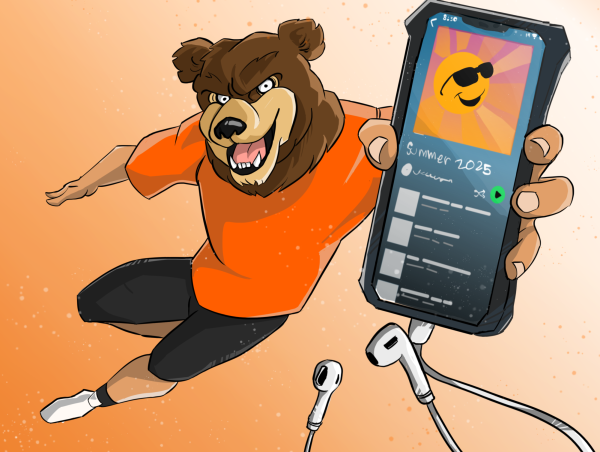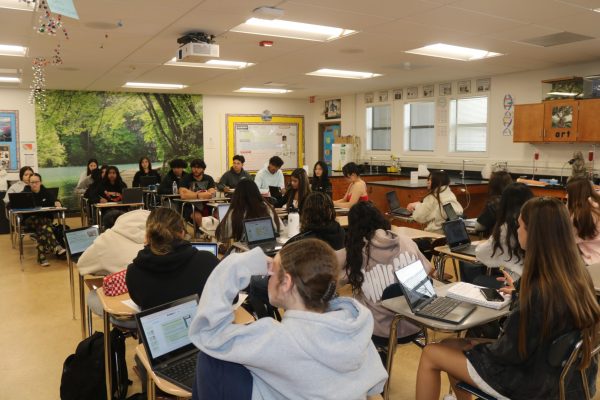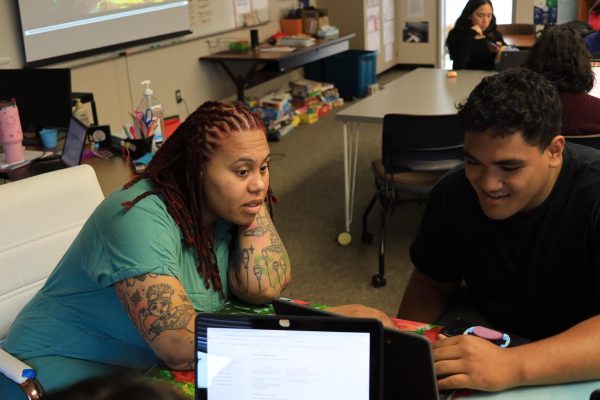Hate crimes rise after election
While President Donald Trump entered the presidency with the lowest approval rating in US history, there are still millions people who rejoice at his victory.
Within 10 days of Trump’s election, about 900 reports of harassments and intimidations occurred, according to the Southern Poverty Law Center, which tracks hate crimes.
In fact, there has been a 115 percent increase in hate crimes reported since the election, according to the British newspaper The Observer. Many of these crimes have reportedly been in Trump’s name.
Hate crimes are common throughout the US, which is evident in cities where racist messages such as “white power” and “black lives don’t matter” have been scrawled in graffiti.
One group called “Americans for a Better Way” sent a letter to Muslim mosque in Los Angelas advocating the genocide of Muslims.
The Los Angeles Times published part of the group’s letter, which read, “[Trump] is going to cleanse America…and he’s going to start with you Muslims. [He’s] going to do you Muslims what Hitler did to Jews.”
Also, NYPD Officer Aml Elsokary received the nation’s attention when she and her son became victims of a hate crime.
Elsokary, who is Muslim, found her son being shoved by a white man. When she tried to stop him, the white man threatened to cut the officer and her son’s throats and told them to go back to their country.
In a more indirect approach, hate has been graffitied across the country. In Wellsville, New York, the words “make America white again” were spray-painted onto a dugout wall with a noticeable swastika in the center of the message.
Many high schools have racist graffiti written on bathrooms and walls.
Senior Harris Razaqi, who is Muslim, has had some close experience with hate crimes.
“My aunt was attacked by some guys and they beat up her car with her inside, shouting names at her,” said Razaqi.
Razaqi feels that the common stereotypes placed upon him don’t affect him in school, but he feels that they will later in life.
Other students have felt threatened on campus based on how others perceive them.
President of the Gender Sexuality Alliance club Saadhana Deshpande was recently walking to the library with her friends, when a boy walked past and said, “Hey, f*g.”
“I was so scared. I felt afraid, upset and offended,” said Deshpande, who believes the trend in hate crimes will undoubtedly continue because of Trump.
“His place of power validates the xenophobia of this country,” said Deshpande.
But hate crimes aren’t exclusive to minorities and also have been committed by those who oppose Trump.
On Jan. 4, four black teens in Chicago kidnapped an 18-year-old white man with special needs who was an open Trump supporter. They live streamed the kidnapping on Facebook and tortured the man while shouting remarks such as “F*** Trump” and “F*** white people.”
“The climate of the election and the rivalry of the candidates brought out the worst in people,” said senior Alanah Winston, who is president of Cal’s Black Student Union and has some first hand experience involving hate crimes.
As she mentioned at the Nov. 29 assembly the school hosted in response to several incidents of racist graffiti on campus, Winston was in seventh grade when two white boys came up behind her in her school library.One boy put her in a chokehold, preventing her from breathing while the other said “white power” to her face.
To this day, Winston still experiences racial discrimination.
“I’m often followed by people in the supermarket just to make sure that they know I’m not stealing anything,” said Winston.
Winston hopes hate crimes will decrease as time goes on.
“The reality of his presidency will set in and the hate crimes will decrease,” said Winston.



